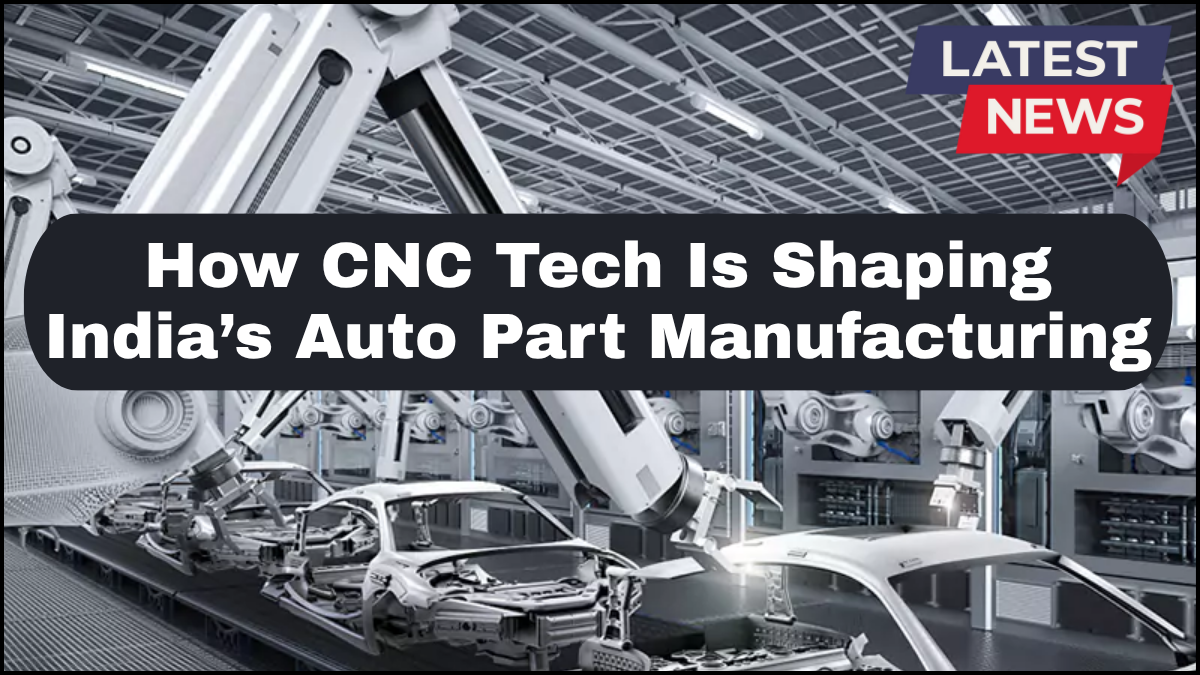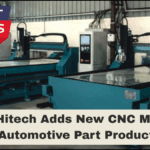India’s automotive industry is accelerating toward a high-precision, high-performance future—and CNC (Computer Numerical Control) technology is at the wheel. Once considered a specialized tool for high-end production, CNC machines are now at the core of modern auto parts manufacturing in India. From complex engine components to intricate interior fittings, CNC’s role in auto parts production is reshaping the entire supply chain with precision, efficiency, and consistency.

What Is CNC Technology?
CNC refers to automated machine tools controlled by computers executing pre-programmed sequences of operations. Unlike manual machining, CNC allows for micro-level precision, repeatability, and minimal human error. In auto part manufacturing, this technology is used to cut, shape, mill, turn, and finish components with extremely tight tolerances—critical for performance and safety in modern vehicles.
CNC’s Role in Auto Parts Production
India’s transition to becoming a global manufacturing hub hinges on its ability to produce high-quality automotive components at scale. CNC’s role in auto parts production supports this ambition in several key ways:
1. Precision Manufacturing at Scale
CNC machines deliver repeatable results with accuracy down to microns. This is crucial when producing thousands of identical engine blocks, brake components, or gear shafts. Any deviation, even by a fraction, can affect vehicle safety or performance. CNC ensures every piece matches exact design specifications, supporting the rise of precision car component tech across the country.
2. Flexibility Across Component Types
Whether it’s metallic parts like crankshafts and camshafts or plastic components for dashboards and instrument panels, CNC systems handle a wide variety of materials. Advanced multi-axis CNC machines allow complex geometries to be created in a single run—saving time and reducing the need for secondary processing.
3. Accelerated Prototyping and Production Cycles
CNC helps reduce development time dramatically. Engineers can design, simulate, and manufacture parts in a closed digital loop. This enables faster prototyping, quicker validation, and shorter time-to-market. It’s a game-changer for Indian automotive OEMs and tier suppliers aiming to innovate rapidly without compromising quality.
4. Lower Operational Costs Over Time
While the initial investment in CNC systems may be significant, they dramatically lower long-term costs by reducing waste, rework, and labor dependency. Automation also improves machine uptime and supports lights-out manufacturing—where production continues overnight with minimal supervision.
India’s CNC-Driven Automotive Growth Story
Major automotive manufacturing clusters in Pune, Chennai, Gurgaon, and Sanand are seeing a surge in CNC-enabled workshops and plants. Indian companies are integrating CNC systems with IoT and AI for predictive maintenance, real-time quality checks, and adaptive machining. This not only enhances productivity but also ensures India remains competitive in exports to Europe, the U.S., and Southeast Asia.
Global carmakers and Tier 1 suppliers are increasingly sourcing from Indian vendors known for precision car component tech backed by CNC excellence. For example, companies like Bharat Forge and Sundaram Clayton are leveraging CNC to produce export-quality components for luxury brands like BMW, Ford, and Mercedes.
Challenges and Opportunities
Despite its benefits, the adoption of CNC tech in India faces challenges such as high capital investment, skill shortages, and limited access to advanced software. However, with government initiatives like Make in India and Skill India, the gap is closing fast. New training centers and technical institutes are equipping the next generation of machinists and engineers with the know-how to manage and innovate using CNC technology.
Additionally, as EV (electric vehicle) production rises, demand for ultra-precise components like battery housings and lightweight drivetrain parts will further cement CNC’s role in the future of auto parts production in India.
Frequently Asked Questions (FAQs)
Q1. What is CNC’s main advantage in auto part manufacturing?
CNC technology offers unmatched precision, repeatability, and efficiency. It ensures that every component meets exact design and performance standards—critical in automotive applications.
Q2. How does CNC contribute to cost savings?
Although CNC machinery requires a significant initial investment, it reduces long-term costs by minimizing human error, material waste, and production time. Automation also reduces labor dependency.
Q3. Are CNC machines suitable for all types of auto components?
Yes. CNC systems can handle a wide range of materials and component complexities—from engine parts to plastic fittings—making them ideal for diverse automotive manufacturing needs.
Q4. Is India ready for large-scale CNC implementation in the auto industry?
Yes, many Indian manufacturers have already adopted CNC tech at scale. With rising demand, better infrastructure, and government support, CNC integration is rapidly expanding.
Q5. What is the future of CNC in India’s auto manufacturing?
CNC will play a central role as India shifts toward electric vehicles and advanced mobility solutions. The demand for precision parts and rapid prototyping will make CNC indispensable in the years to come.
click here to learn more



